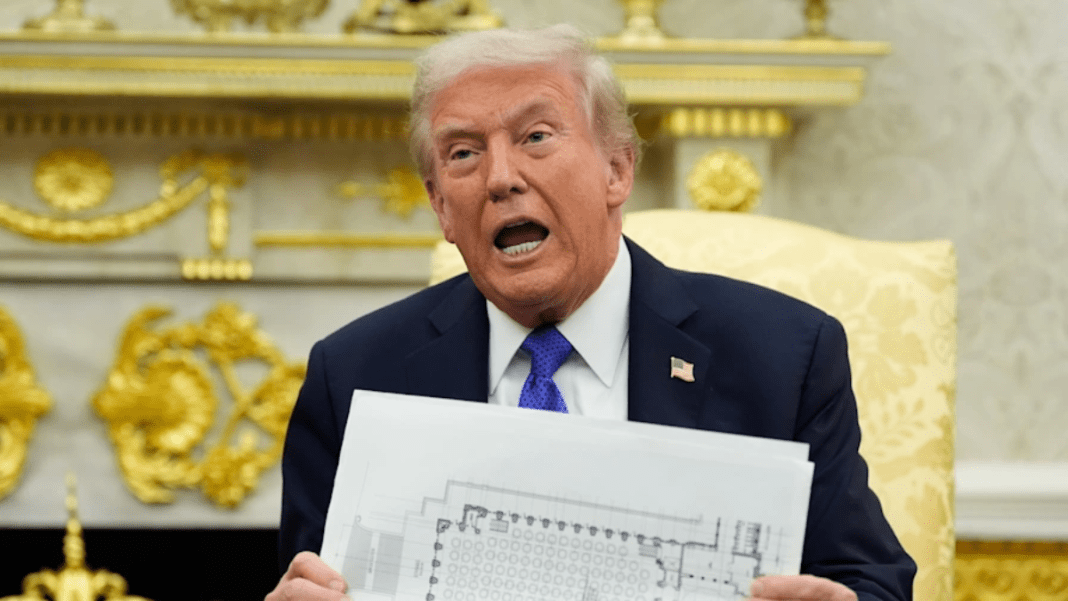A new and surprising claim about a secret government plan called “Operation Arctic Frost” has spread quickly across political circles. The alleged operation is said to involve spying on lawmakers and even recording private phone calls. It has also been tied to accusations about interference in the 2020 presidential election.
According to the claim, senior officials from the Biden administration — including FBI Director Christopher Wray, Special Counsel Jack Smith, Attorney General Merrick Garland, and Deputy Attorney General Lisa Monaco — reportedly approved or signed off on the secret project. The alleged plan is described as a wide-ranging surveillance effort targeting senators, members of Congress, and other political figures.
So far, no government department or investigative agency has confirmed the existence of any such operation. No official records, documents, or public statements support the claim. Despite that, the topic has sparked widespread discussion and strong reactions from political commentators, experts, and citizens alike.
The idea that a government surveillance program might target elected officials has alarmed many. Legal experts say that, if such spying occurred, it would represent one of the most serious violations of privacy and law in recent history.
White House criticizes Sanders and Ocasio-Cortez over social media posts on government shutdown
What Is Known About “Operation Arctic Frost”?
The name “Operation Arctic Frost” has never appeared in any verified government record or official briefing. It is not listed among known national security programs, law enforcement operations, or intelligence projects.
Analysts have pointed out that major government operations are usually documented and require legal approval from multiple agencies and oversight committees. Any form of surveillance against lawmakers would typically need authorization through court orders and congressional review.
Because there are no public records of “Operation Arctic Frost,” experts caution that the claim remains unverified. Nonetheless, it has drawn attention because it combines two powerful ideas: government surveillance and election interference. Both topics remain sensitive and politically charged in the United States.
Election specialists note that similar accusations have been made before, often without supporting evidence. These claims tend to generate significant public attention, especially when they involve well-known government figures such as Wray, Smith, Garland, and Monaco. Each of these officials has played a key role in overseeing or managing investigations linked to national security and high-profile legal matters.
Despite their high-ranking positions, none of these officials has publicly addressed the new allegation. There have been no statements or responses from the Department of Justice, the FBI, or any office connected to them regarding “Operation Arctic Frost.”
Public Debate and Official Silence
The claim surrounding “Operation Arctic Frost” has stirred intense public debate. Supporters of the allegation believe it could expose serious wrongdoing within the federal system. They argue that if such a project existed, it would show a dangerous level of corruption and misuse of authority.
On the other hand, many observers are calling for caution. They emphasize that extraordinary claims require clear and verifiable evidence. Without documentation or confirmation from credible institutions, the story remains speculative.
Government officials have not issued any formal response or comment about “Operation Arctic Frost.” The Department of Justice and the FBI have also made no announcements suggesting that any internal investigations or surveillance programs under that name exist.
Cybersecurity and privacy experts have noted that misinformation about intelligence activities can spread easily when there is little official information available. They recommend relying only on verifiable records and recognized news sources when evaluating such claims.
Despite the uncertainty, the discussion has grown quickly, reflecting the ongoing public concern about government transparency and accountability. Many Americans remain wary of how surveillance powers are used and whether political bias could ever influence such actions.
The term “Operation Arctic Frost” continues to circulate widely in political and media conversations. Whether it represents a real operation, a misunderstanding, or a false claim is still unknown. What is clear, however, is that the suggestion of secret spying and election interference involving high-level officials such as Christopher Wray, Jack Smith, Merrick Garland, and Lisa Monaco has reignited major national debates about power, trust, and the limits of government authority.
